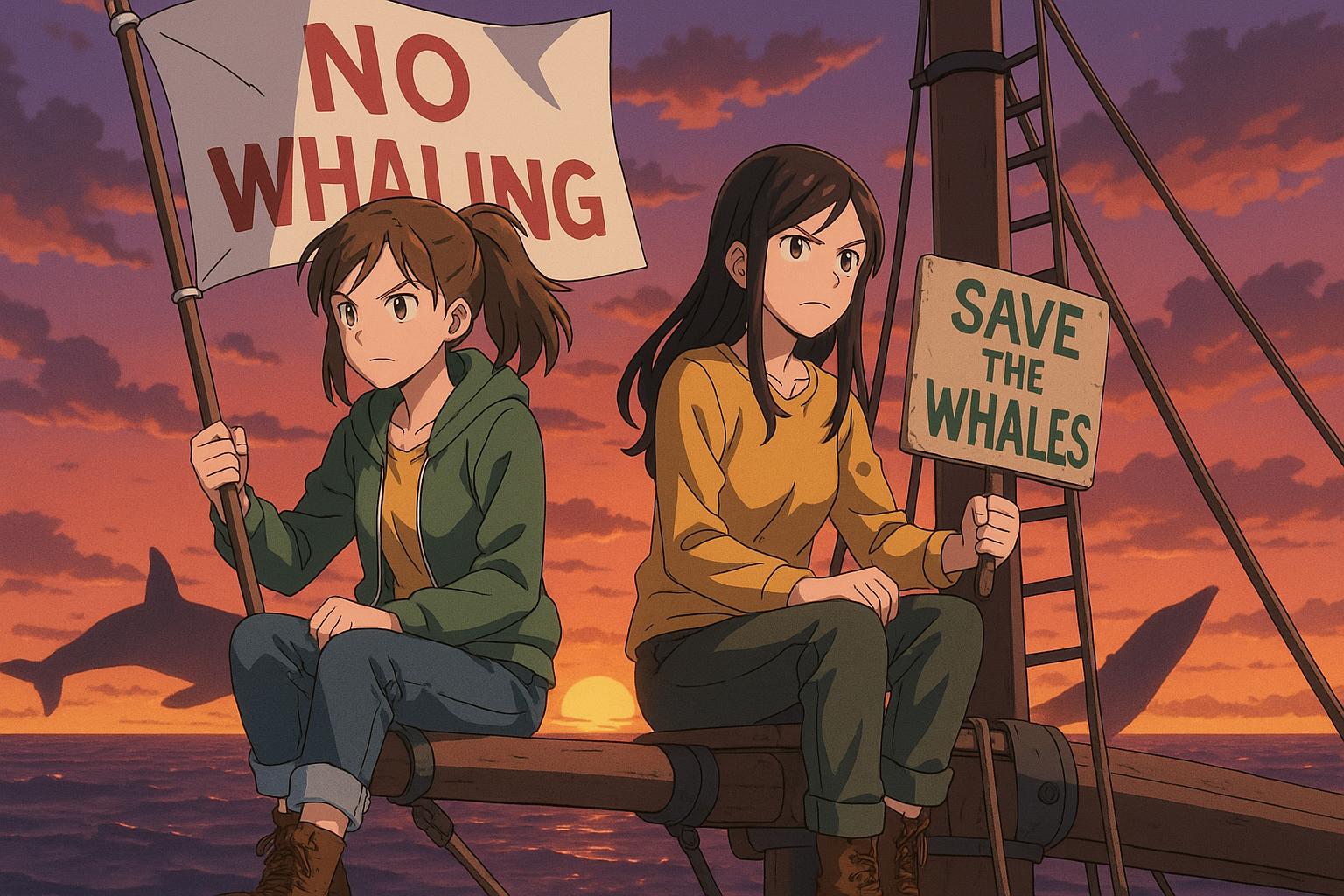Two environmental activists are facing potential prison sentences after a bold protest against whaling in Iceland. Elyssia Phillips, a British national from Lewes, and Anahita Babaei, an Iranian activist, made headlines when they climbed onto the masts of an active whaling vessel and remained there for 33 hours, aiming to disrupt operations and draw attention to the controversial practice of killing endangered fin whales.
Only Japan, Norway, and Iceland continue to defy the International Whaling Commission’s ban on commercial whaling, an issue that has kept conservationists mobilised for decades. Their protest comes at a particularly sensitive time as Iceland recently allowed whaling to resume after a temporary ban expired on August 31, a decision that has sparked international condemnation and raised alarms about the sustainability of whale populations.
Since their arrest in September 2023, Phillips and Babaei have been charged with three criminal offences, which could lead to six months in prison or substantial fines. Both activists insist that their actions constituted peaceful civil disobedience. Phillips stated, “It is civil disobedience, we didn’t hurt anybody or damage anything. It is us peacefully sitting up there saying we didn’t want the whales to be murdered.” They have accused the Icelandic authorities of making them scapegoats as part of a broader crackdown on dissent following a surge of anti-whaling and anti-fishery protests, as well as demonstrations on unrelated issues, such as immigration laws.
Mounting evidence suggests that whale hunting in Iceland poses significant animal welfare concerns. According to a report by Iceland’s Food and Veterinary Authority, the harpooning method currently in use can leave whales suffering for extended periods, with some animals taking up to two hours to die after being struck. Despite these findings, the Icelandic government, under pressure to respond to conservationist concerns, has issued permits allowing hunting until 2029, detailing restrictions that still permit the capture of hundreds of whales each season.
The aftermath of the protest has left Phillips and Babaei in legal limbo, unable to apply for travel visas, with Babaei particularly anxious about her inability to visit family in Iran. Their lawyer, Linda Emilsdóttir, stated that the prosecution's motivations appear driven more by a desire to suppress protests than by a genuine commitment to justice. Emilsdóttir argued that the prolonged investigation, which has lasted two years, is disproportionate given the nature of the women's actions—characterised as harmless and an integral part of public discourse.
As they await trial, scheduled for January 2026, the activists have taken to crowdfunding to help manage legal fees while voicing that the charges against them lack substantial evidence. Their case reflects a broader climate of rising opposition to whaling in Iceland, as public sentiment increasingly shifts against the practice.
The Icelandic police have yet to respond to inquiries regarding the arrests, and while the UK Foreign Office has not been approached for consular assistance, it has indicated readiness to offer support if necessary. The events surrounding this case have not only reignited discussions about the ethics of whaling but also about the rights of activists to freely express their opposition to practices they deem harmful to the environment.
📌 Reference Map:
- Paragraph 1 – [1], [4]
- Paragraph 2 – [1], [3], [7]
- Paragraph 3 – [1], [2], [5]
- Paragraph 4 – [6]
- Paragraph 5 – [1], [4]
Source: Noah Wire Services
